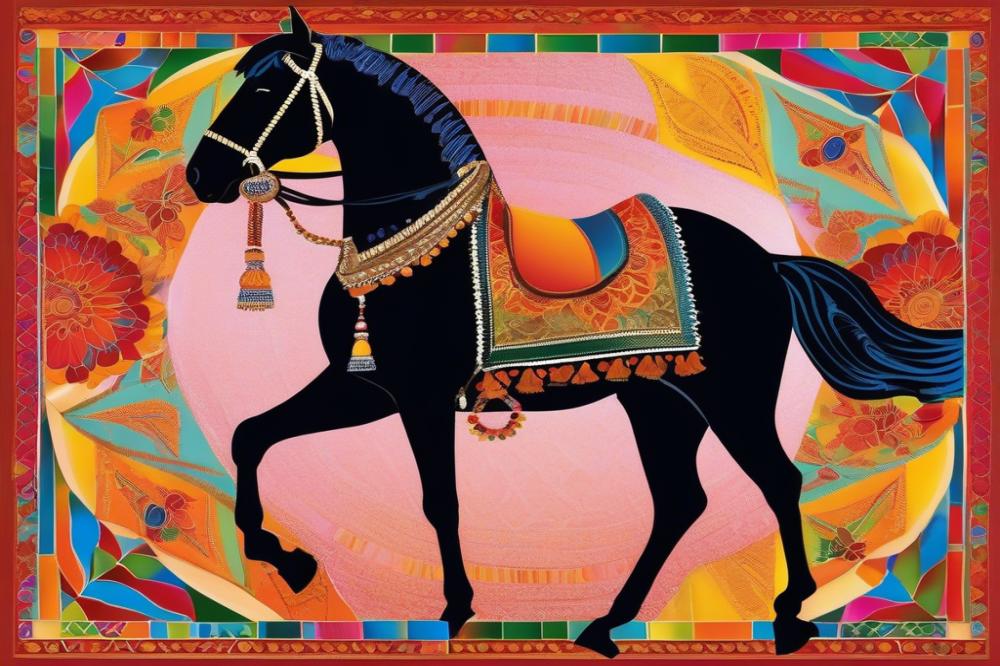The Significance of Horses in Indian Festivals and Traditions
Across the globe, horses hold a special place in various cultures. They are symbols of strength, beauty, and nobility. In many societies, these majestic animals have been integral to festivals and traditional celebrations. Their presence adds excitement and a sense of grandeur, marking important events in unique ways.
In India, horses feature prominently in many festivals and cultural traditions. Festivities often include vibrant parades showcasing these animals, which brings energy to the atmosphere. Various regions celebrate the bond between people and horses through their customs. During events such as Jallikattu in Tamil Nadu or the famous Pushkar Camel Fair, horses play a vital role, underscoring their importance in Indian folklore and history.
Understanding this connection between horses and Indian Traditions is essential. It reflects a rich tapestry of heritage that has evolved over centuries. When we explore their significance, we unearth stories of valor, companionship, and cultural pride. Appreciating the role of Horses in Indian Festivals enhances our knowledge of the country’s diverse cultural landscape. Their contributions help weave the fabric of community life, making these celebrations memorable.
Horses in Indian Festivals
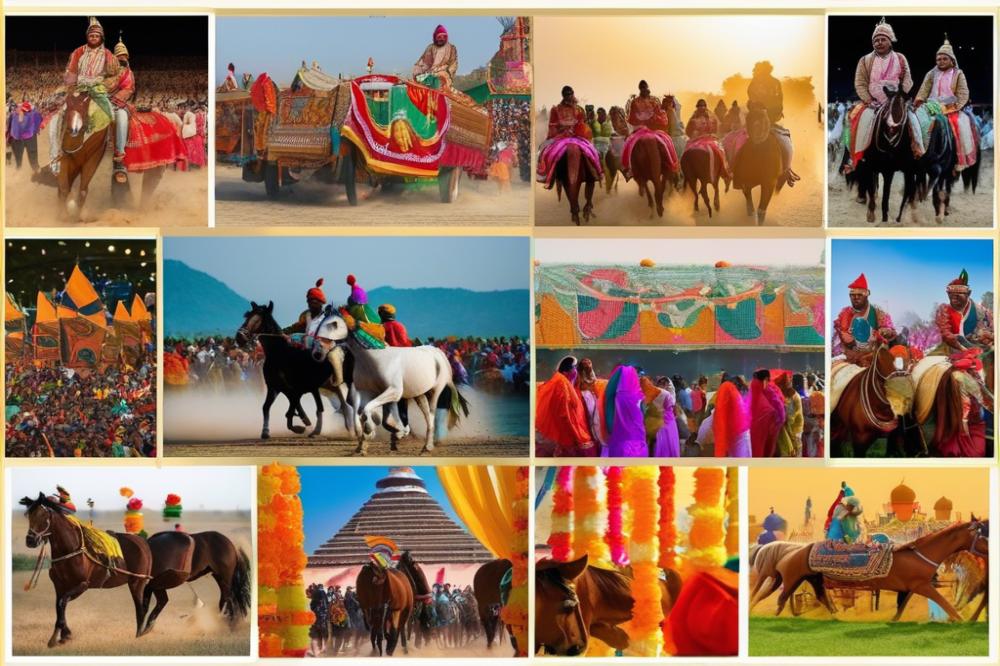
Horses hold a special place in many Indian festivals. Numerous celebrations around the country showcase these majestic animals. From vibrant parades to traditional rituals, horses often take center stage. Their presence adds a distinct flavor to the festivities. Communities come together to honor these beautiful creatures.
Festivals Featuring Horses
The Nagaur Cattle Fair is one of the most famous events where horses shine. Each year, thousands of livestock are brought to this fair. People from different regions gather to trade and display their animals. Marwari horses, known for their strength and beauty, are a highlight at the fair. They are often adorned with colorful decorations, drawing attention from visitors.
In various parts of India, horse processions are a common sight during festivities. These events encourage community spirit and unity. Families come out to watch the spectacles unfold. Individuals often share stories while enjoying the vibrant atmosphere. The sight of horses galloping gracefully captures the joy of the celebrations.
Significance in Celebrations
Horses symbolize wealth and status in many cultures. Their role in festivals signifies prosperity and good fortune. The connection between horses and humans runs deep in Indian Traditions. Many rituals involve horse sacrifices or blessings to seek divine favor. These practices reflect the cultural reverence for these animals.
In some regions, horse races and competitions are part of the festivities. These events engage local communities in thrilling displays of speed and talent. Enthusiastic crowds cheer as riders showcase their skills. This interaction creates a sense of belonging among participants and viewers.
During weddings, horses often play a significant role. The groom traditionally arrives on horseback, signifying auspicious beginnings. This custom adds grandeur to the event. It reinforces the joy shared among families and friends. As the horse prances forward, it symbolizes the start of a beautiful journey.
Ultimately, horses contribute to the cultural tapestry of India. They blend tradition with celebration, strengthening community bonds in the process. Each festival highlights the connection between people and these magnificent animals, ensuring their cherished status in Indian society.
Rituals and Processions
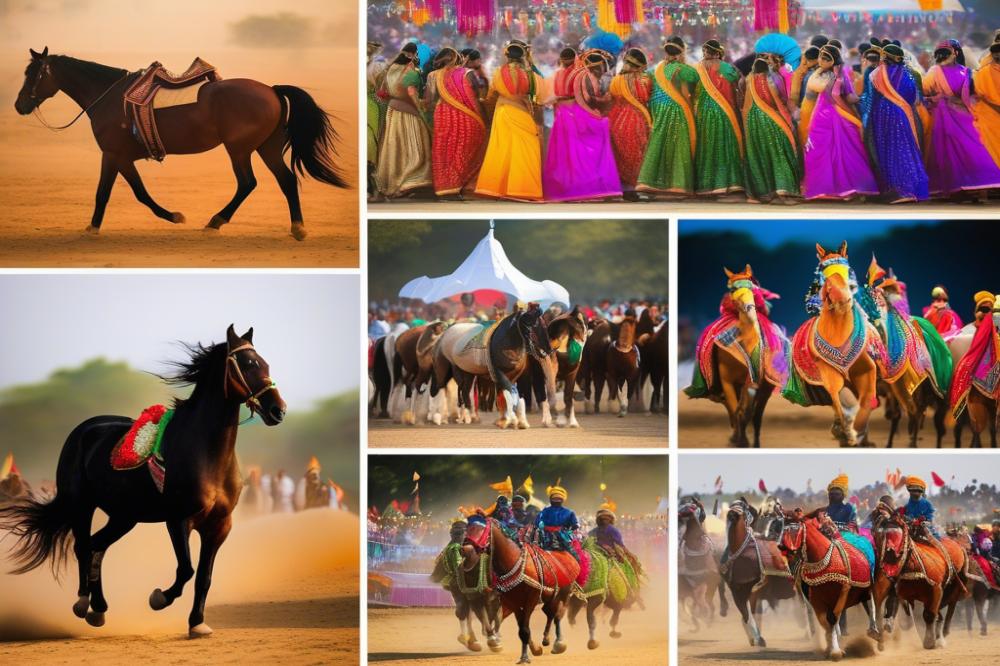
Role of horses in traditional rituals and religious processions
Horses hold a revered position in various traditional rituals across India. These animals often symbolize strength and courage. During important festivals, they take part in colorful processions. In many regions, families decorate horses with vibrant fabrics and ornaments. This enhances the festive atmosphere, making it a visual delight. Participants ride horses as part of the celebrations, showcasing their grace and beauty.
Description of specific ceremonies where horses are integral
One notable ceremony is the “Baisakhi Mela.” Every spring, people celebrate the harvest with lively parades. Horses are adorned with flowers and gold-plated accessories. Another ceremony, “Gudi Padwa,” features horse rides accompanied by music and dance. The rhythm of drums fills the air while horses gallop proudly alongside revelers. Such events highlight the connection between the community and these majestic creatures.
Connection between horses and spiritual beliefs in Indian culture
Horses are often seen as spiritual messengers. In Hindu mythology, the sun god, Surya, travels in a chariot pulled by seven horses. This idea reflects the divine nature associated with these animals. Additionally, many believe that horses symbolize wealth and prosperity. Rituals involving horses aim to invoke blessings and good fortune. Devotees often pray for health and success during important ceremonies, recognizing their powerful role in spirituality.
Folklore and Mythology
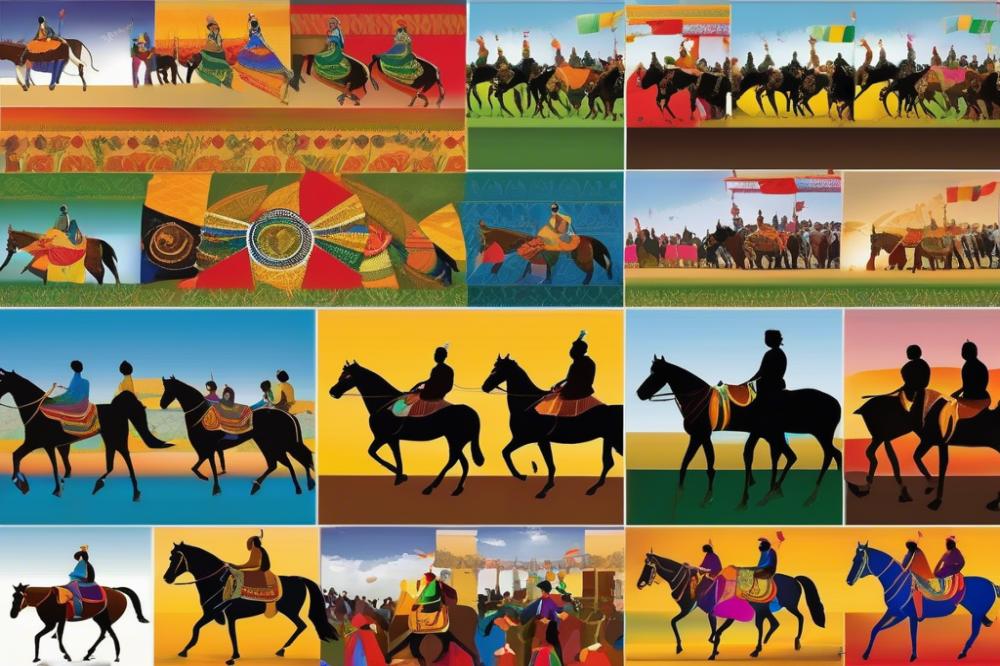
The role of horses in Indian folklore and mythology is both vast and profound. Ancient texts often depict them as symbols of strength and nobility. Famous epics like the Mahabharata and Ramayana feature equestrian heroes and their noble steeds, showcasing the bond between humans and horses.
Numerous stories highlight the significance of these magnificent creatures. For instance, in one tale, Lord Krishna is said to have controlled the powerful horse, Keshava, representing the conquest of desire and ego. Another popular legend speaks of Ashvamedha, the horse sacrifice ritual, where a divine horse symbolizes the emperor’s sovereignty and power.
equestrian figures have influenced cultural narratives deeply. These characters often embody virtues such as loyalty and bravery. This connection between horses and human values adds a rich layer to storytelling traditions across India.
Many regional festivals celebrate this bond. The vibrant state of Rajasthan, for example, hosts colorful events featuring beautifully adorned horses. Participants showcase their riding skills, paying homage to the animals that play a crucial role in their heritage.
Horses also appear in various forms of art and dance, further embedding them in cultural practices. Folk dances often celebrate the equestrian lifestyle, demonstrating the animals’ importance in rural communities. Through these performances, the legacy of horses continues to be shared from generation to generation.
Artistry and Craftsmanship
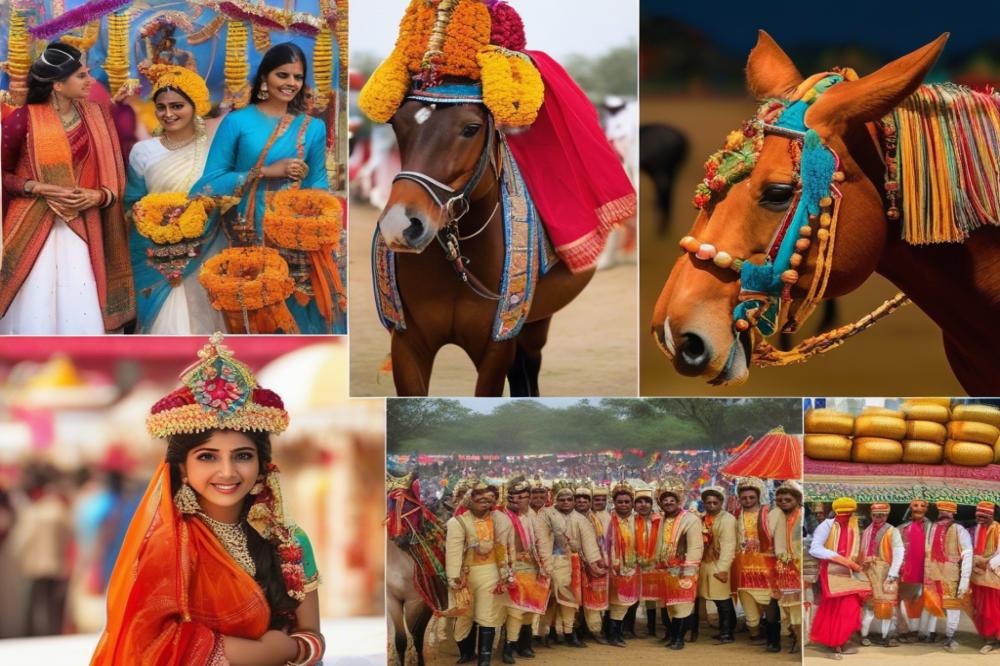
Horses have often been a source of inspiration in Indian culture. Artistic representations of these majestic animals can be found in various forms, from paintings to sculptures. Many traditional artworks showcase horses in colorful and vibrant styles. Artists use motifs that reflect the grace and strength of these creatures, often incorporating elements from mythology and folklore.
Craftsmen create horse figurines using materials like wood, metal, and clay. Each piece is made with careful consideration of detail. In regions like Rajasthan, artisans have developed a unique style of puppetry that features horses. These puppets tell stories and entertain, making them popular during festivals. Traditional embroidery and textiles also highlight horses, showing their significance in regional crafts.
The preservation of equestrian craftsmanship faces challenges today. As modernity spreads, traditional skills risk disappearing. Keeping these time-honored practices alive is critical for cultural identity. Workshops and exhibitions help promote awareness among younger generations. Encouraging appreciation of these art forms can foster a sense of pride in heritage. The role of horses in celebrations adds layers to these artistic expressions.
Cultural Heritage and Identity
Horses hold a prominent place in India’s diverse cultural landscape. Across many regions, they symbolize pride and identity. In states like Rajasthan, horse riding is not just a skill but a way of life. People flaunt their beautifully adorned steeds during festivals, showcasing their rich heritage.
The presence of horses during celebrations has a remarkable impact on fostering social bonds. Families and communities come together to participate in equestrian events. These traditions promote unity and strengthen ties among neighbors. From thrilling races to vibrant parades, these activities create a shared sense of belonging.
Throughout history, the connection between humans and horses has molded India’s cultural identity. Ancient epics and folklore often feature these majestic animals, highlighting their significance. Artistic expressions, such as dance and music, celebrate this bond in various forms. Festivals frequently showcase elaborate horse-themed motifs, reflecting admiration and respect for these animals.
Moreover, the legacy of horses transcends mere traditions. They have inspired craft and artistry in regions filled with equestrian vigor. Craftsmen create intricate decorations that adorn horse gear, adding further value to their significance. In this way, horses are woven into the very fabric of regional culture, reminding people of their rich history.
Final Thoughts on the Role of Horses in Indian Cultural Heritage
Horses have been integral to many traditions and festivities in India. Their significance extends far beyond mere transportation. They represent power, grace, and an age-old connection to the land and its people. Across the country, equestrian displays during celebrations showcase the deep respect communities hold for these majestic creatures.
Various festivals highlight the bond between humans and horses. During certain occasions, they are adorned in vibrant colors, reflecting the spirit of joy and festivity. This involvement creates a lively atmosphere, bringing people together. Rituals connected to these animals often reveal the beliefs and values of different regions. From traditional dances to ceremonial parades, horses symbolize a rich heritage.
Embracing this connection is essential for our cultural identity. These animals have played a vital role in molding traditions over centuries. Their presence reminds us of the tales, legends, and customs passed down through generations. As we engage in festivities, horses are a visual and emotional thread that ties us to our past.
It’s crucial to appreciate this unique aspect of our heritage. Preserving the traditions associated with horses not only honors our history but also enriches our cultural tapestry. By supporting equestrian events and celebrating the role these animals play, we contribute to maintaining a vibrant part of Indian culture. Let us recognize and cherish the significance of horses, ensuring they continue to be a celebrated aspect of our traditions for years to come.

